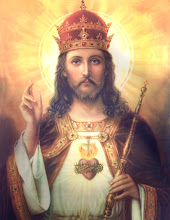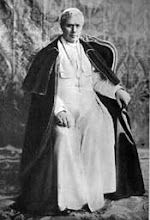The pioneers of the Revolution also belonged frequently to the clergy. The "philosophising abbés" could be found everywhere, men such as Sieyès, Raynal, Bishop Gregóire, Mably, de St. Pierre and Barthélmy. Voltaire owed his deism to the Abbé de Châteauneuf and not without reason did Rousseau put the summary of his sentimental-deistic philosophy into the mouth of his Vicaire Savoyard. Enlightment and the Revolution had little to fear from the more intellectual clergy. Voltaire and Diderot both had been educated by the Jesuits (who are by no means the mind molders a certain type of propaganda makes them out to be). And since the totalitarian movements of the last hundred years are in part or even predominantly Christian heresies if not caricatures of the monastery, it is not so suprising that men and women with a distinctly Christian background fall from them. Neither the clerical state nor the seminary training are by any means prophylactics against such deviations. Who could imagine the French Revolution without the participation of clerics and exclerics, Russian Bolshevism without Stalin and Mikoyan, both former seminarians? Nor could one conceive of the earlier leftist currents without Arnaldo di Brescia, Joachim de Floris, John Ball, John Wycliff, or Campanella. Corruptio optimi pessima.
Erik von Kuehnelt-Leddihn - Leftism - 1974
Subscrever:
Enviar feedback (Atom)
















0 comentários:
Enviar um comentário